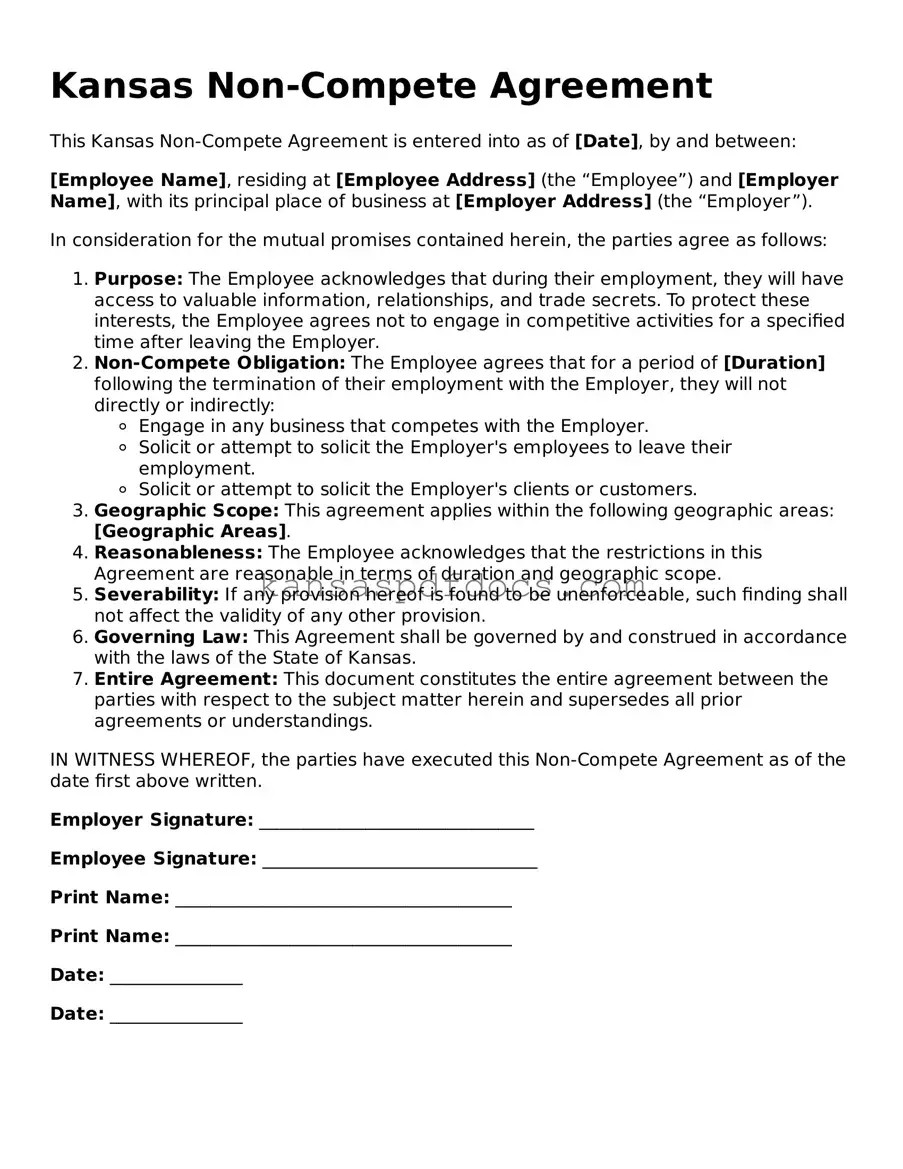Valid Non-compete Agreement Template for Kansas State
A Kansas Non-compete Agreement form is a legal document that restricts an employee from engaging in activities that compete with their employer after leaving the job. This form aims to protect business interests by preventing the sharing of sensitive information and trade secrets. Understanding its components and implications is essential for both employers and employees navigating the employment landscape in Kansas.
Access This Form Now

Valid Non-compete Agreement Template for Kansas State
Access This Form Now
Your form isn’t ready yet
Edit and finalize Non-compete Agreement online without printing.
Access This Form Now
or
Get PDF Form
